Vocabulary development Normal Social Studies Worksheets for Ages 3-4
5 filtered results
-
From - To
Nurture young minds with our captivating "Vocabulary Development Normal Social Studies Worksheets for Ages 3-4". These delightful worksheets feature engaging activities designed to expand the vocabulary of preschoolers through fun, educational exercises. Each worksheet blends social studies concepts with exciting vocabulary challenges, promoting linguistic growth and foundational social understanding. Ideal for early learners, these printable resources foster curiosity and enhance communication skills in a playful and age-appropriate manner. Invest in your child's early education journey and watch them thrive with increased language proficiency and a love for learning about their world. Download and start exploring today!
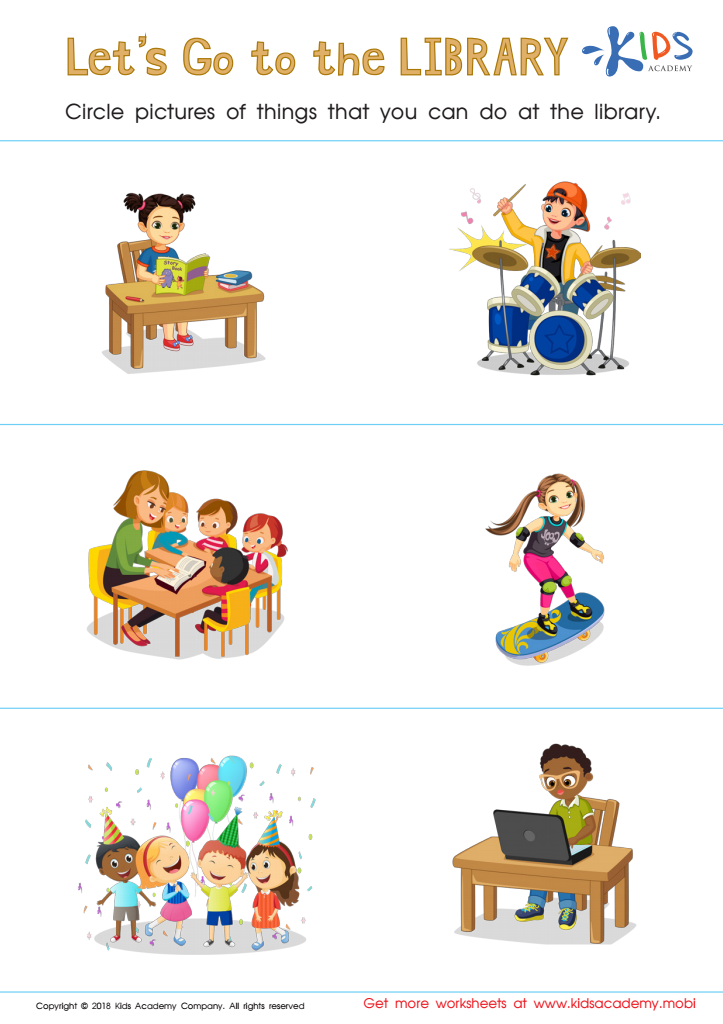

Let's Go to the Library! Worksheet
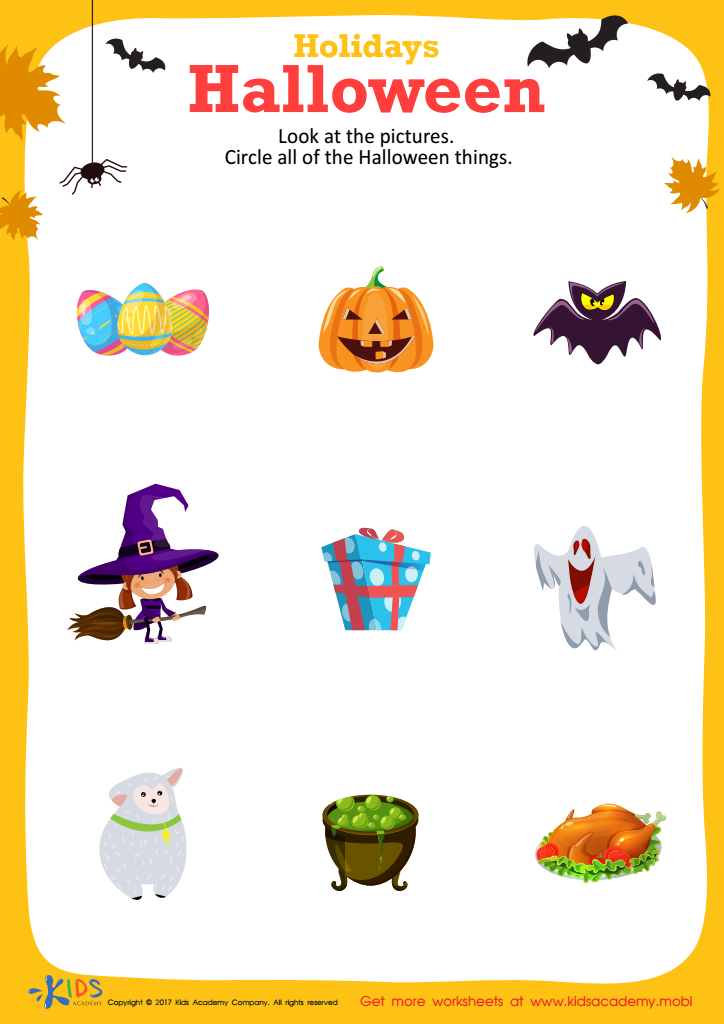

Halloween Holiday Worksheet
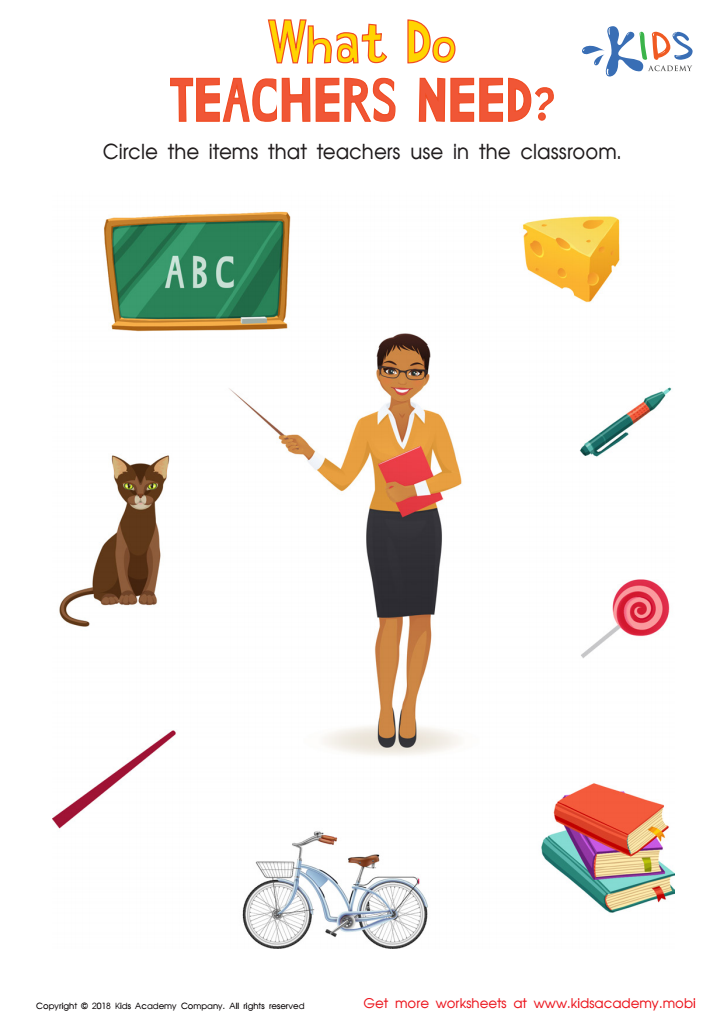

What Do Teachers Need Worksheet
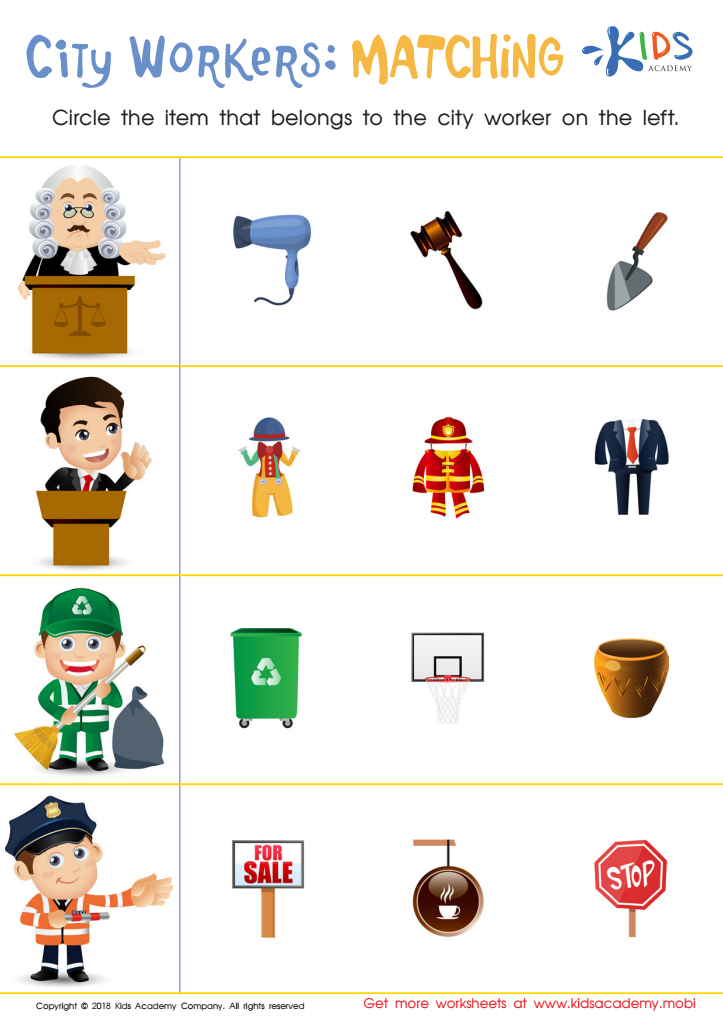

City Workers: Matching Worksheet
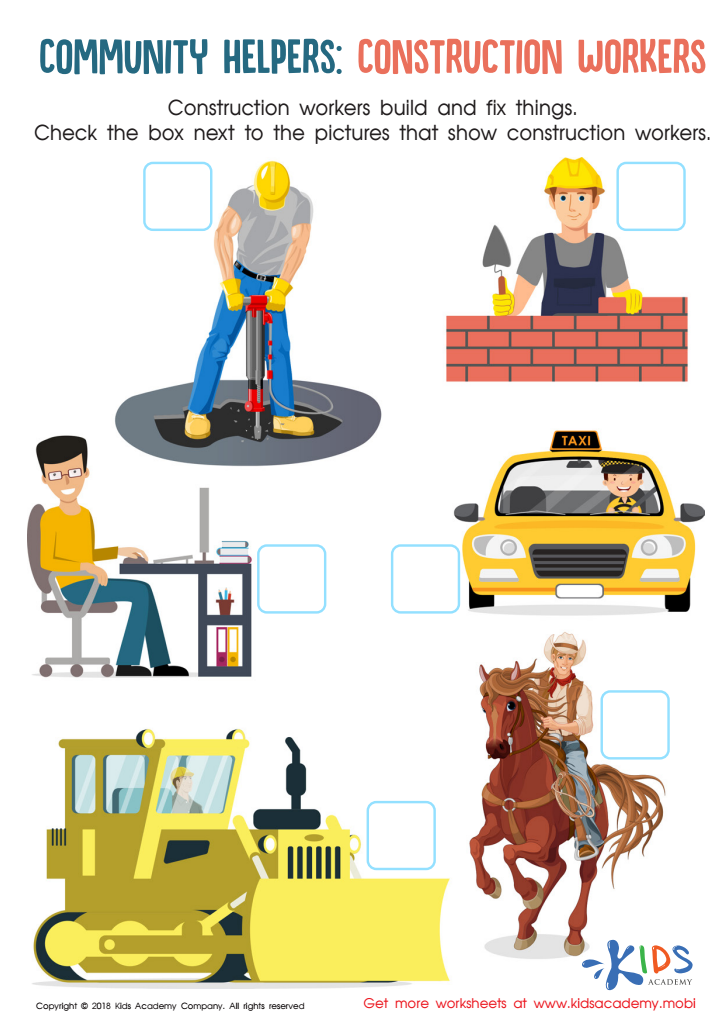

Construction Workers Community Helpers Worksheet
Vocabulary development is a crucial aspect of early childhood education, especially within the context of Social Studies for children aged 3-4. At this formative stage, children's brains are exceptionally receptive to language acquisition, which lays the foundation for future learning and cognitive development. Having a rich vocabulary allows children to express their thoughts and understand others more effectively, fostering better communication skills.
In the realm of Social Studies, vocabulary development is particularly important as it introduces young children to concepts about the world around them, including family, community, and culture. By learning terms related to their immediate environment and social structures, children begin to make sense of their place in the world, developing a sense of belonging and identity.
Furthermore, an expanded vocabulary enhances children's ability to comprehend stories, follow instructions, and ask questions, driving curiosity and a love for learning. Engaging in conversations about social studies topics nurtures critical thinking and reasoning skills.
Parents and teachers play an essential role by providing a rich linguistic environment and introducing age-appropriate vocabulary through stories, discussions, and interactive activities. This supports cognitive and emotional development and lays the groundwork for academic success in later years. Therefore, attention to vocabulary development in Social Studies is key to nurturing well-rounded, informed, and communicative individuals.

 Assign to My Students
Assign to My Students




















